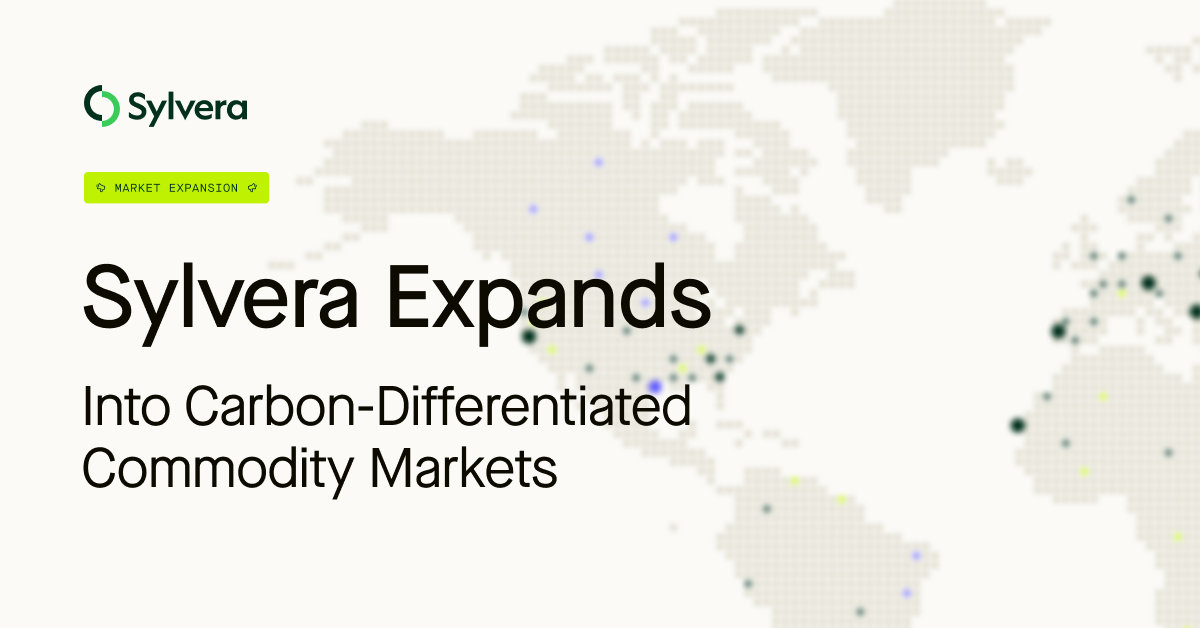“Over the years we’ve invested significantly in our field data team - focusing on producing trusted ratings. While this ensures the accuracy of our Ratings, it doesn’t allow the scale across the thousands of projects that buyers are considering.”
For more information on carbon credit procurement trends, read our "Key Takeaways for 2025" article. We share five, data-backed tips to improve your procurement strategy.

One more thing: Connect to Supply customers also get access to the rest of Sylvera's tools. That means you can easily see project ratings and evaluate an individual project's strengths, procure quality carbon credits, and even monitor project activity (particularly if you’ve invested at the pre-issuance stage.)
Book a free demo of Sylvera to see our platform's procurement and reporting features in action.
Article 6 of the Paris Agreement establishes three approaches for Parties to voluntarily cooperate in achieving their Nationally Determined Contributions (or NDCs). The Article 6.4 Mechanism is one of these approaches and aims “to contribute to the mitigation of greenhouse gas emissions and support sustainable development” (Paris Agreement text, Article 6.4). The Article 6.4 mechanism Supervisory Body sought inputs regarding requirements for the development and assessment of mechanism methodologies.
*16 August 2023. In response to this call for input.
For questions, please contact carmen.alvarez@sylvera.io
Aspects listed in the Submission Details
1. Addressing options laid out in the text for implementation of baseline, additionality and leakage assessment requirements;
Please see below
2. Addressing pros and cons of the different options;
3. Addressing the balance in the text between substantive guidance in the draft recommendation text and further guidance to be elaborated in the tools;
4. Addressing clarity, structure and understanding of text, with proposals for improvement.
7 - The RMP mentions that methodologies can also be developed by stakeholders. However, stakeholders are not mentioned in paragraph 7 of the draft recommendation text. Is this a change?
30 - Methodologies should indicate that if the host country benefit sharing requirements are more stringent than those required by the methodology, the host country ruling applies.
Specific questions formulated in the draft recommendations
(46) - Should the above paragraph (46/46bis) be split to improve clarity?
No. We suggest keeping it together to ensure all information related to baseline-setting choices is read together. Clarity can be achieved by using the appropriate punctuation and language, rather than splitting the paragraph.
(47) - Should the downward adjustment be eligible/applicable for all the approaches to setting the baseline?
Yes, except for those approaches that already imply a more stringent baseline over time. Historical baselines, used by ART TREES and Verra in their jurisdictional REDD+ methodologies, would probably not need a downward adjustment. For example, under ART TREES, a program’s baseline is calculated as the average emissions of the last 5 years. As the activity is implemented, the average emissions decrease, resulting in a more stringent baseline in the next period. The key question would be how often the historical reference period is revised, meaning how often the baseline is pushed downwards. As a preemptive measure, a floor for downward adjustment could be implemented (to ensure a minimum downward trend).
(53) - Should the downward adjustment be eligible/applicable for all the approaches to setting the baseline indicated in para 44 above?
See the answer above (47)
95 - Are positive lists needed? If yes, is the above guidance on positive lists too specific and detailed, and may the guidance be shortened?
- Positive lists can save time and effort in comparison to evaluating the additionality of activities on an individual basis.
- Further guidance would be needed, for example, in relation to how often the positive list should be updated.
99 - Should pre-project activity emissions and upstream emissions be accounted as activity emissions or leakage emissions, or be identified by the Supervisory Body as being beyond the scope of activity accounting guidance? What further assessment is needed in this regard?
This should depend on the activity type. For activities where in general the levels of upstream emissions are low, those emissions should be considered out of the scope of activity accounting guidance. For those activities that are for example associated with high electricity consumption (such as Direct Air Capture), methodologies should include guidance to account for them.











